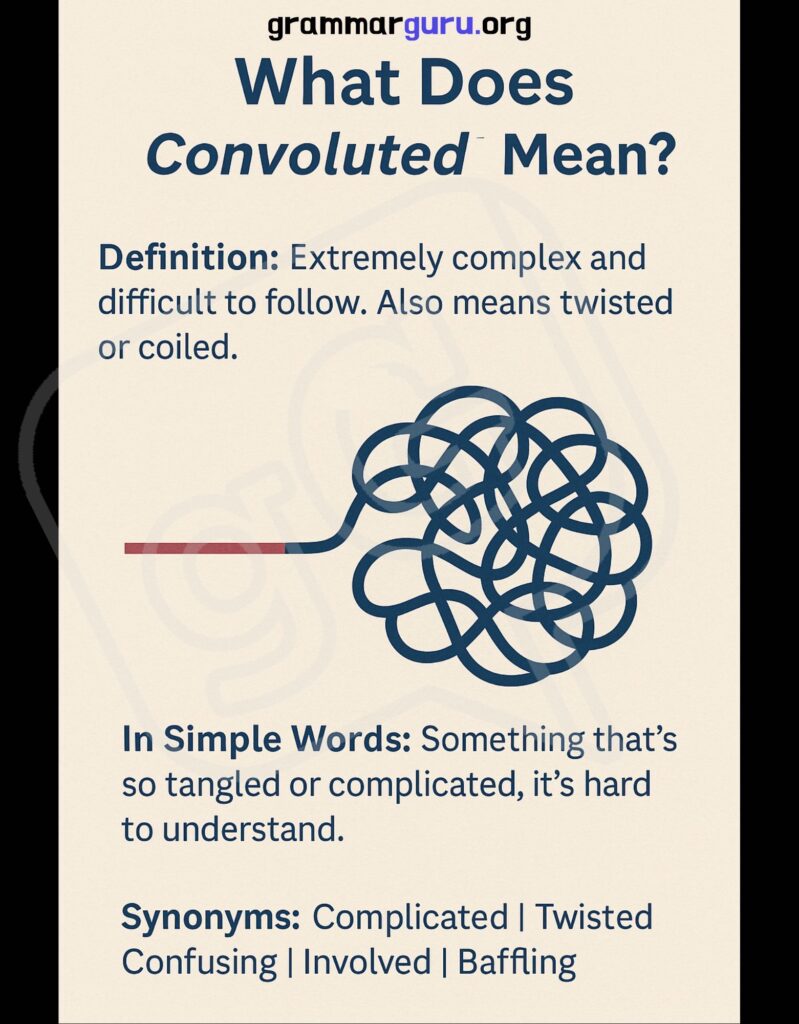Ever stumbled upon a word that sounds as twisted as its meaning? Convoluted is one of those terms that might leave you scratching your head—ironically, just like the concepts it describes. Let’s untangle this word, break down its definitions.
Convoluted Definition
Convoluted describes something that’s unnecessarily complicated or difficult to follow. Think of a sentence with five clauses, a maze-like policy, or a plotline full of needless detours.
Its roots lie in the Latin convolutus, meaning “rolled together.” Picture a rope so tightly twisted it turns into a knot.
Example:
“The instruction manual’s convoluted explanations made building the table feel like solving a puzzle blindfolded.”

When Logic Becomes Convoluted
Convoluted logic happens when someone complicates a simple idea. Imagine a coworker offering a ten-step solution for a two-step task. Instead of adding clarity, they create confusion.
In daily life, this shows up in paperwork, technical instructions, or movies that require a diagram to follow. The result? Wasted time and mental energy.
Complex vs. Convoluted: What’s the Difference?
While “complex” and “convoluted” are often used interchangeably, they’re not the same:
- Complex: A system or idea with many interconnected parts that make sense when understood (e.g., a smartphone’s engineering).
- Convoluted: A system or idea made messy by unnecessary layers (e.g., a 50-page document to explain a 1-page policy).
Complexity can be impressive; convolution is exhausting.
Formal Synonyms for Convoluted
- Complex – Detailed and intricate, but not necessarily messy.
- Byzantine – Excessively complicated (named after the famously bureaucratic Byzantine Empire).
- Labyrinthine – Twisty and maze-like (like trying to exit a Costco on a Saturday).
- Tangled – A knotted mess (see: Christmas lights after storage).
- Involved – Requires effort to understand (like your friend’s 2-hour movie recap).
- Circuitous – Indirect and long-winded (like a politician answering a yes/no question).
- Knotty – Difficult to unravel (both in ropes and in arguments).
- Elaborate – Highly detailed, sometimes unnecessarily so.
- Baroque – Ornate and overcomplicated (like a wedding cake with 17 tiers).
- Gordian – Extremely intricate (from the “Gordian Knot,” which was so convoluted, Alexander the Great just cut it).
Life is messy enough. Don’t let convoluted language or ideas pile on. Ask: “Can this be made simpler?”
In most cases, yes — and the result is stronger, clearer communication.
See more:
